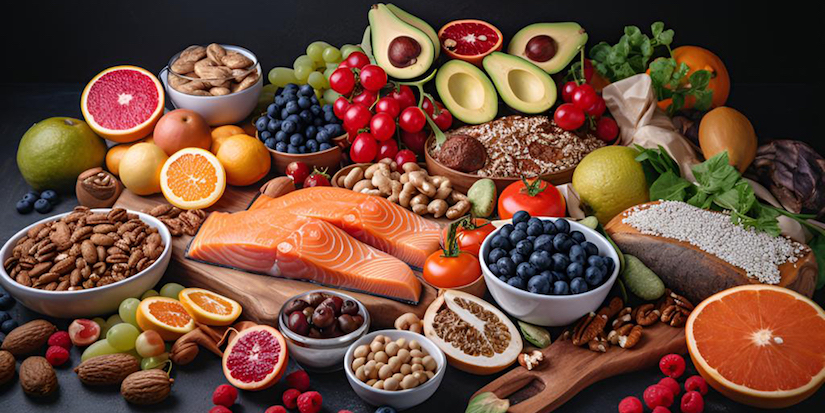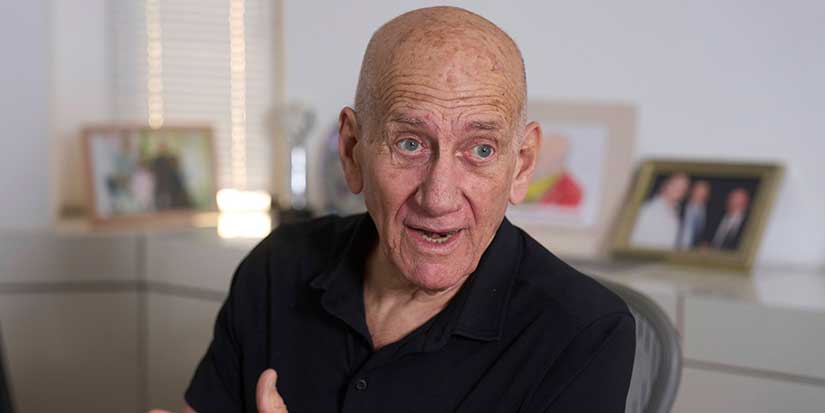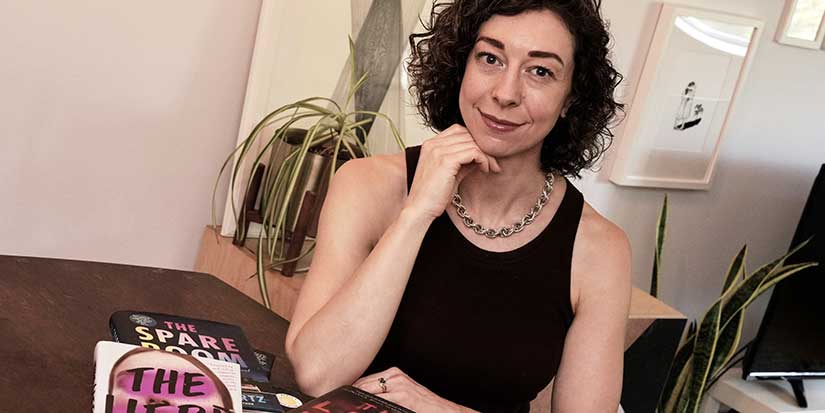Latest News
You are the game changer in 2024

Published 11:47 PDT, Fri March 15, 2024
—
The Richmond Sentinel sat down with Rika Mansingh in a video interview to talk about ‘increasing brain cells”. She is no stranger to the Richmond Sentinel as she has provided our viewers with valuable health and wellness information for months. She is a best-selling author, a registered dietitian, a certified meditation expert, she is an NLP master practitioner, a podcaster, hypnotherapist and she is a regular contributor to the Richmond Sentinel.
Jim Gordon (JG): Rika Mansingh, we haven’t seen you since early December, I understand you took a month off to go home to see your family in South Africa. It’s great to have you back.
Rika Mansingh (RM): It’s good to be back home and I’m so grateful to be here Jim, thank you for having me.
JG: You’re quite welcome, while we’re a couple months into 2024, we’re familiar with those New Year’s resolutions. To get fit, eat better, drink less, less coffee, whatever. I don’t say this gleefully but often the resolutions starts to decrease after a week. It’s interesting because we want to talk today about change and people’s resistance to change. In your book the Empowerment, Mind, Diet Equation, you discuss the concept of the brain can change. Let’s elaborate on that.
RM: That is such an interesting concept Jim, because for decades scientists believed that we’re born with a fixed number of brain cells, and if we damage them with unhealthy lifestyle choices as we age, we may not repair them or make new brain cells.
It is so empowering to know that is no longer true. We can actually repair damaged brain cells and also boost our brain cells, even if we are older. The brain can actually be molded to become smarter, more creative, resilient, adaptable to change, and we can also improve our memory and reduce our risk of Alzheimer’s disease.
JG: What are some of the strategies to boost brain cells and change the brain?
RM: Before I go into the strategies I want to highlight, two terms that I’ll refer to throughout our conversation today. The first is neogenesis which is the production of new brain cells, in my book I explore neuroplasticity, which is the brain’s ability to restructure and repair itself.
So basically, what that scientific jargon means is that you’re never too old to change your brain and you can have a mental makeover at any point. Coming back to your question about the strategies, there’s very simple strategies to boost brain cells or boost neurogenesis and it occurs by increasing a protein called BDNF, which basically stands for brain derived neurotrophic factor.
What that does, is that it preserves the brain cells that you have and it also repairs damaged brain cells. Simple strategies, eating healthy for the brain, I like to say eat-brain-wise. Learning is a crucial component to boosting your brain cells. Exercise, is very important, and there’s things like maintaining healthy relationships and social connections. Also doing leisure activities like, reading, writing, gardening. Being in nature is naturally what your brain wants and also getting sufficient sleep.
JG: In regards to eating brain wise, I think we’re peaking people’s curiosity. Give us three key foods or ingredients that boost brain cells and support brain health. I’m curious to hear what you’re going to say to this.
RM: There’s so many foods and ingredients that boost neurogenesis, increase brain cells and enhanced brain function. I will just cover three of them and some may overlap the previous segments. I like to say Omega-3 for a brainy me.
Omega-3 boosts the protein, BDNF, it increases your brain cells through neurogenesis; it enhances your brain function and reduces inflammation, your stress hormone cortisol, and omega-3 actually alleviate symptoms of depression and reduces your risk of Alzheimer’s disease. We get our Omega-3, from oily fish, salmon, sardines, mackerel, herring, and halibut. It’s also available in supplement form.
The second ingredient is cumin a compound found in turmeric, it also increases BDNF, boosts your brain cells and reduces your risk of Alzheimer’s disease. Turmeric is like a spice, you can add it to your food, or you can take it in supplement form but it’s very water soluble. You want to take turmeric twice a day. If you’re taking it in a supplement form, you want to do at least 500 milligrams twice a day because it leaves your system very fast. Black pepper, is known to enhance turmeric absorption, that’s another good nutrient for brain health.
The third ingredient, I say, “Bring on the berries”. Berries, blueberries, cranberries in particular, they enhance brain function and protect your brain cells against aging. Blueberries have antioxidants called pro-anthocyanins and what they do is actually improve learning, memory, you’re thinking, and delay brain aging and shrinkage. So, summing up a simple strategy; blueberries, your omega-3s, cumin, that’s just a few.
JG: I think a lot of people feel if blueberries weren’t so expensive in the off season, we would buy more. Here’s a question, I’ve been really looking forward to asking you, and that is red wine which receives mixed reviews. Red wine is something I’d like to think we still enjoy. Are there benefits for the brain?
RM: Even though there are mixed reviews as you mentioned, many diets include a glass of red wine as part of a healthy eating plan. The reason for that is, it contains polyphenols called Resveratrol, which is derived from grapes and known to enhance your brain function, boost brain cells, and is good for memory. But, let this resonate, there’s only 4.9 milligrams of Resveratrol per five ounces or 150 ml glass of wine, we need 100 milligrams of Resveratrol twice a day. Best to go with the supplement as having more than one to two glasses of wine will have the opposite effect on the brain and damage brain cells.
JG: In your book you mentioned that learning builds cognitive reserve. Can you give us an explanation of that.
RM: I love the concept of cognitive reserve, it’s a very important concept in brain health. Basically, view cognitive reserve as a protective shield or your brain’s self defense mechanism. To keep your brain sharp and resilient to changes associated with degenerative brain diseases and dementia. We can strengthen our cognitive reserve by being mentally active and learning every day. The more we do that, the more resilient our brain becomes, even if exposed to stress, surgery, or toxins like alcohol or toxins from the environment. The more we build up our cognitive reserve, the more we bounce back; faster and more resilient.
JG: In your NLP book, Awaken the Magic Within, you wrote a chapter called ‘You are the game changer’, everything you want is on the other side of change. Talk a bit about that.
RM: I would say you definitely are the game changer, and to revisit the new year’s resolutions, many people start off in January ‘I’m going to do this and this and by February it starts to fade away. I think it’s important to recognize that every day is an opportunity for a fresh start and view your journey in terms of progress.
What I loved about NLP, (is that) it’s made me focus on changing the inner world, that’s your thoughts and your beliefs. Your beliefs create self-fulfilling prophecies. If you view yourself as an unhealthy, unfit person, your mind will adopt habits to fit that description. But, if you believe you’re a healthy person, you will do more exercise, you will eat healthily and slowly change your mindset. The other thing about change is huge change happens when a person is willing to do something different one step at a time and move forward to achieve the result that they want.
I read this book called Psycho Cybernetics, author Maxwell Mels writes about a bicycle. He says a bicycle maintains its poise and equilibrium as long as it’s moving forward towards something. You have a good bicycle; the trouble is you’re trying to maintain your balance by sitting still and having no place to go. It’s important to empower yourself with a vision of what you want to accomplish and move forward each day, one step at a time, with an unshakable belief in yourself and just keep going.
You can follow Rika Mansingh on rikadiet4wellness.com or info@rikadiet4wellness.com
For the video interview in full go to richmondsentinel.ca/videos































